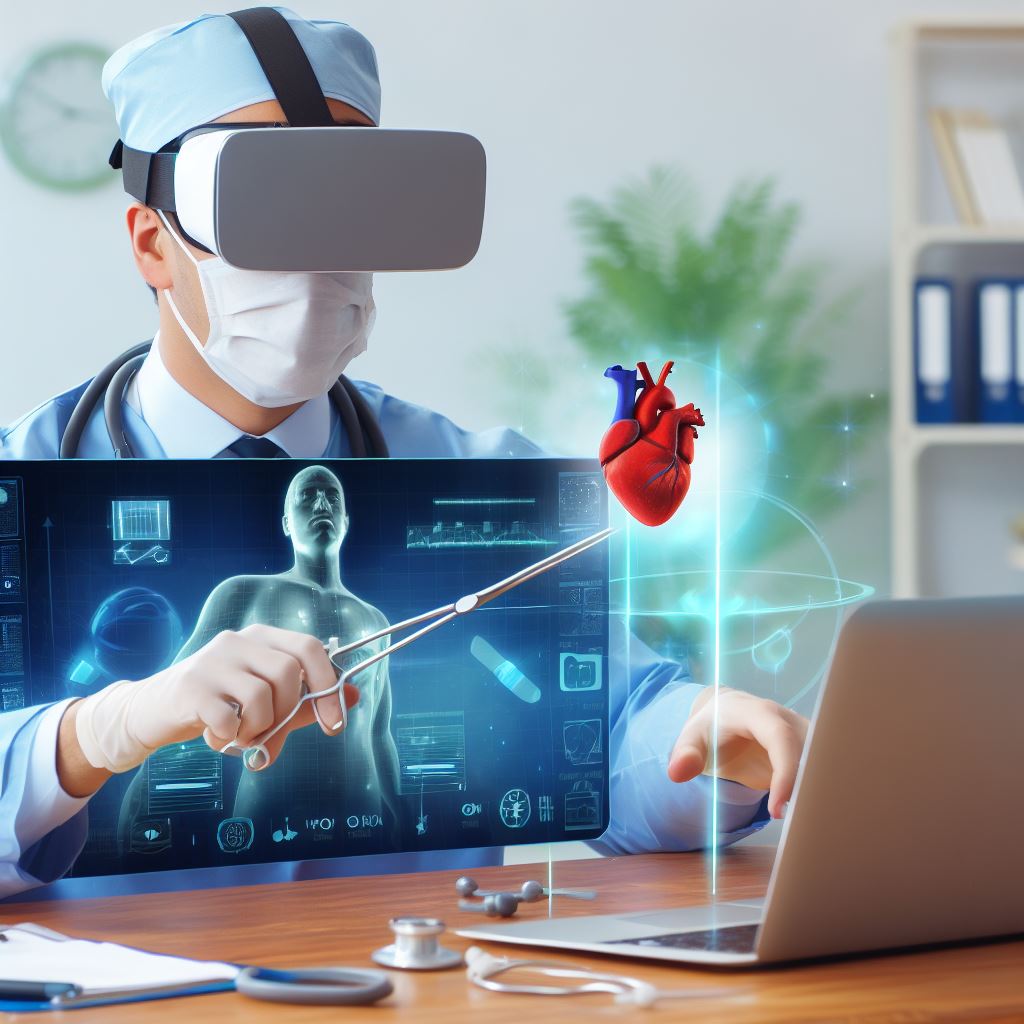In the ever-changing environment of healthcare, Artificial Intelligence (AI) is emerging as a disruptive force comparable to the fourth Industrial Revolution. Its applications cover a wide range of medical fields, with the potential to transform how we approach patient care and rehabilitation.
The Essentials of AI in Medicine:
At its essence, AI refers to computers’ ability to do tasks intelligently while under human supervision. In medicine, AI is more than simply a technology improvement; it is a paradigm revolution. AI has a wide-ranging impact, from assisting clinical disciplines such as radiography to revolutionizing rehabilitation.
AI in Clinical Practice:
One of AI’s most significant accomplishments is its capacity to help healthcare practitioners make clinical decisions. Algorithms are used to learn, think, and generate insights, which improve processes such as radiography and rehabilitation. The technology expands its reach by curating the most recent material from journals, books, and evidence-based practices, allowing for better-informed healthcare decision-making. Furthermore, AI plays an important role in decreasing medical mistakes, a fundamental component of guaranteeing patient safety in healthcare settings.
Sports Medicine and Orthopaedics:
In sports medicine and orthopaedics, AI is showing promise in forecasting athlete injury risks, interpreting medical imaging, and assessing patient-reported results. These applications not only improve the accuracy of diagnosis but also lead to more effective treatment and rehabilitation.
Rehab Revolution:
The influence of AI on rehabilitation is significant. AI improves patient care by helping physical therapists conduct complete exams, anticipate performance, and make accurate diagnoses. Its uses include problem solving, x-ray diagnostics, and the development of best practice guidelines. The use of AI into medical and rehabilitative operations is a big step forward in improving patient outcomes.
Neurology and AI:
AI plays a vital function in neurology. Computer-aided diagnostic (CAD) systems, which use AI and contemporary signal processing technologies, let physicians analyse and interpret physiological data and pictures more efficiently. This is especially important in treating neurological illnesses including epilepsy, Parkinson’s disease, Alzheimer’s disease, multiple sclerosis, and ischemic brain stroke.
AI’s impact does not end there; it actively contributes to the resolution of difficult therapeutic problems associated with brain illnesses. Ongoing study and the development of effective algorithms improve our knowledge of complex brain systems.
AI’s Potential in Neurological Physical Therapy:
AI’s potential in neurologic physical therapy is enormous and transformational. Artificial intelligence has been developed to aid in robotic-assisted treatment, motor function and gait evaluation, upper extremity rehabilitation, and movement analysis. For example, wearable sensors collect data on walking patterns, allowing anomalies to be identified. These AI-powered sensors are critical for analysing functional activities and personalising treatment programmes.
In combination with tele-rehabilitation, virtual reality, and body-worn sensors, the future promises a holistic strategy to monitoring home workouts. Remote therapists might be alerted to erroneous exercise performance or the need for change, thereby improving patient care dramatically.
Finally, incorporating AI into healthcare and rehabilitation is more than a technology development; it is a revolution. As the global healthcare agenda aims for universal health coverage, AI’s potential influence on healthcare delivery is unparalleled. Professionals must embrace the continuing discourse around AI to guarantee appropriate integration and better patient outcomes. AI literacy is essential for successfully navigating the ever-changing healthcare and rehabilitation market. Stay tuned for more on AI’s transformational impact in healthcare and write to us at open-innovator@quotients.com.
Categories
Expanding Role of Artificial Intelligence in Healthcare and Rehabilitation
Categories






